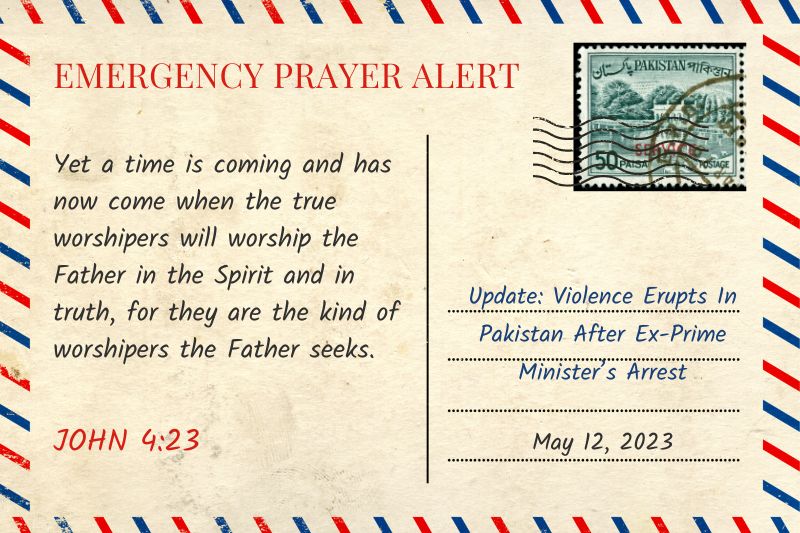Update: Violence Erupts In Pakistan After Ex-Prime Minister’s Arrest

Pakistan is no stranger to violence. Imran Khan, the ex- Prime Minister, is the seventh former prime minister to be arrested in the country. The military has made most of the ruling ever since Pakistan gained its independence from British colonial rule. Khan was arrested Tuesday during a court appearance for one of the many cases against him after he was ousted as Prime Minister. Then in a stark reversal, he was set free on Thursday!
Khan was not surprised by his arrest, but anticipating it, he released a pre-recorded video in which he urged his supporters to support true freedom. He claimed that he was being held under “an illegitimate case.” The recording said, “One thing should become clear for all of you from this (arrest) is that fundamental rights in Pakistan, the rights given to us by our constitution and democracy, have been buried.”
What is Khan’s appeal? Khan was well known to Pakistanis before he ever entered politics. In 1992, he led his country in a World Cup victory in cricket. Every Pakistani knew his name and loved him. He founded the country’s first cancer hospital. He has always been the face of those in Pakistan who want to stand up to the West, and that includes the United States. He appeals to both the young and the old.
Who really holds the power in Pakistan? It is the army. Pakistan’s military is the sixth largest in the world, and it has staged three coups since Pakistan gained its independence in 1947. Is there anyone, any agency holding the government accountable for the unrest and violence that has plagued Pakistan for decades? The Pakistani NAB, The National Accountability Bureau, was designed to do just that – hold elected officials accountable for their actions, but some see the NAB as just another tool available to those in power to crack down on their opponents.
News of Khan’s arrest resulted in violence across the nation. Protesters and supporters of the ex-Prime Minister went on the attack. People attacked Army offices and Army officers’ residences. There was looting and burning, terrorizing the general population. The world weighed in on this uptick in political violence in Pakistan. The European Union urged “restraint and cool-headedness.” U.S. Secretary of State Antony Blinken and British Foreign Secretary James Cleverly said that they were aware of the situation. Blinken said, “We just want to make sure that whatever happens in Pakistan is consistent with the rule of law, with Pakistan’s constitution.” The problem with that is, “The constitution establishes Islam as the state religion and requires all provisions of the law to be consistent with Islam.”
Reacting to the violence and public outrage over Khan’s arrest, Pakistan’s Supreme Court on Thursday ordered the release of Khan. The violence appeared to ease upon hearing this news. The government and the Supreme Court appear to be at odds with one another as the government denounced the ruling and said it would find other ways to arrest the ex-Prime Minister. This challenge to the Supreme Court by the government practically guarantees that Khan’s future is still up in the air.

